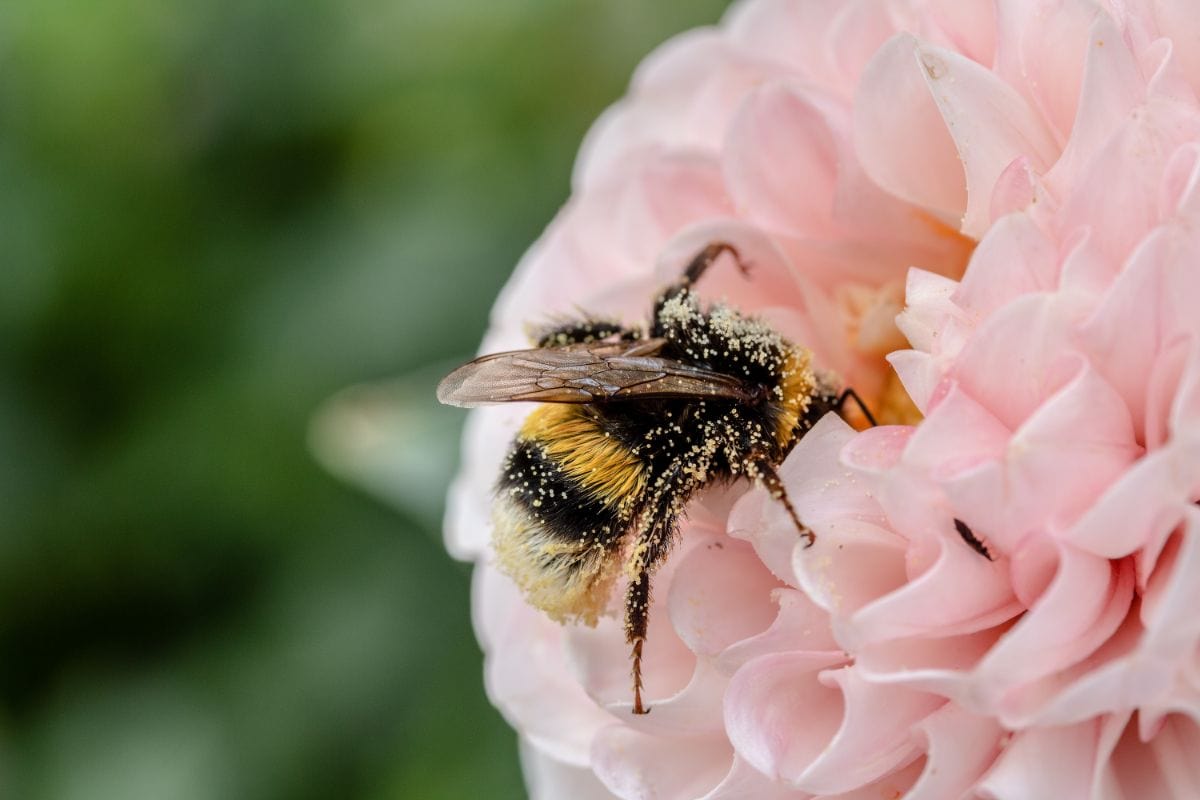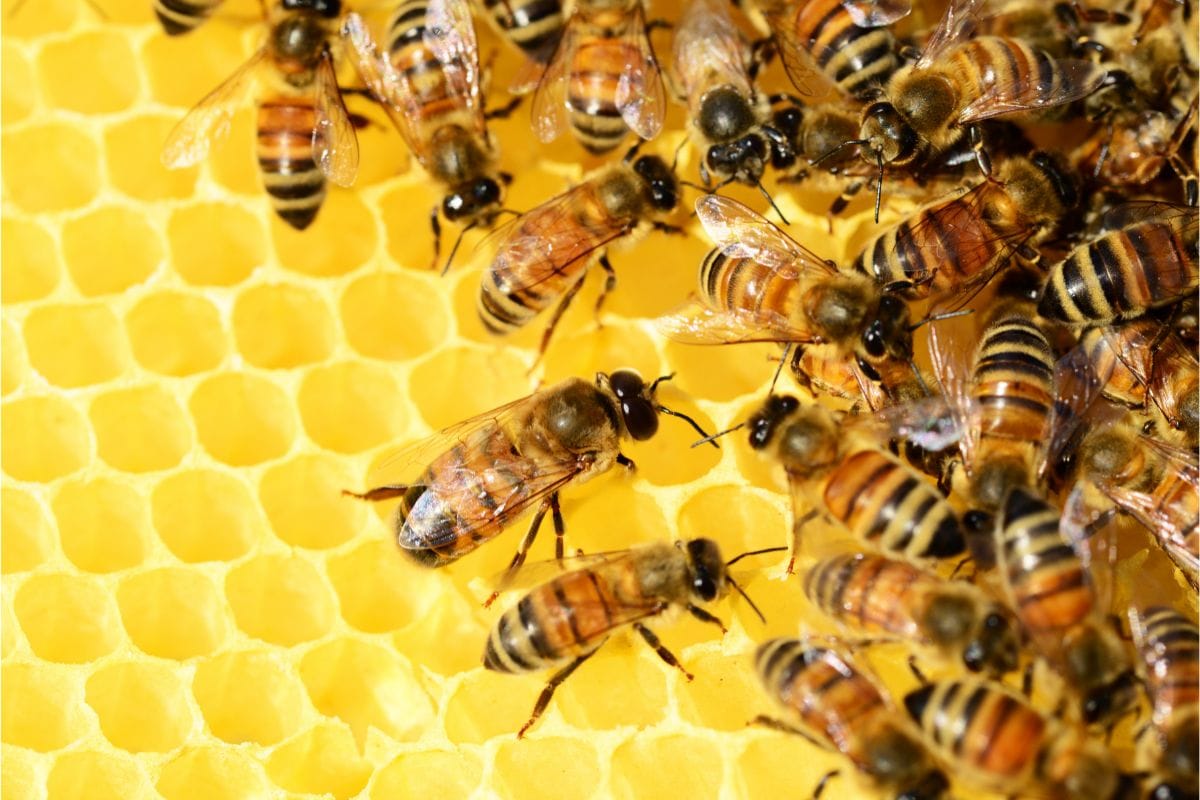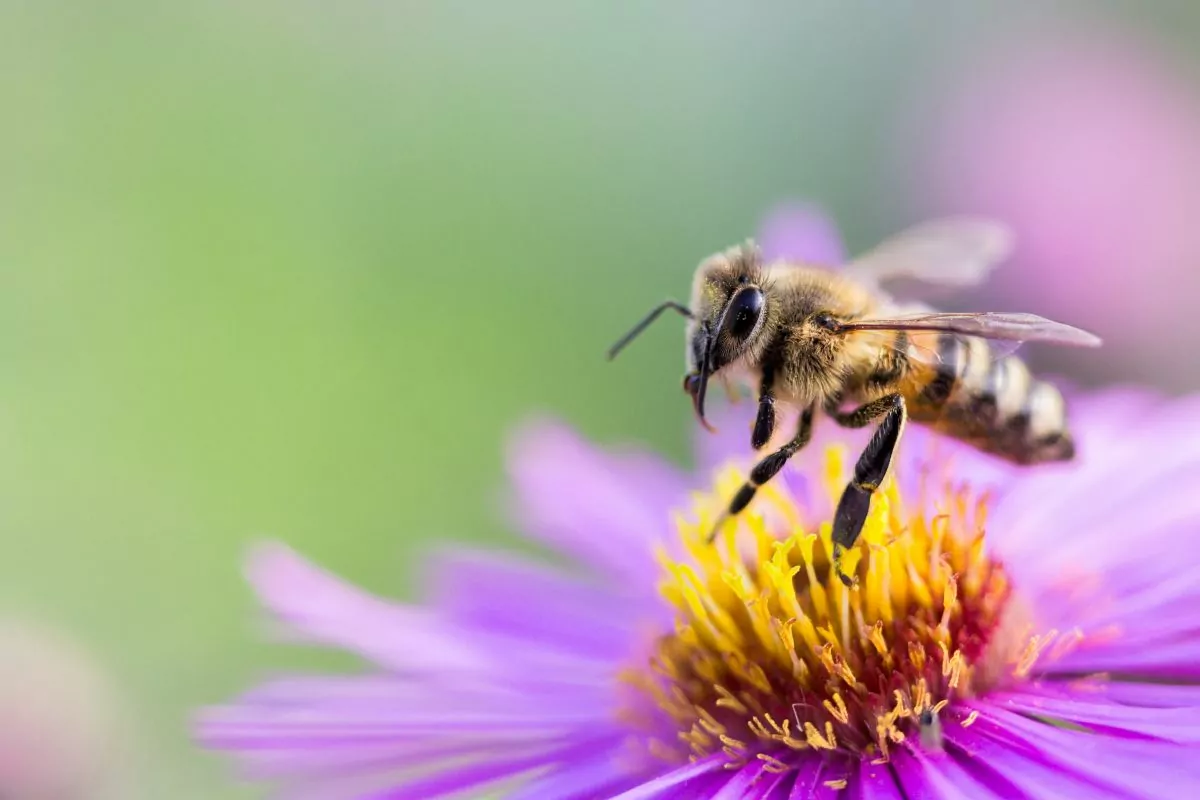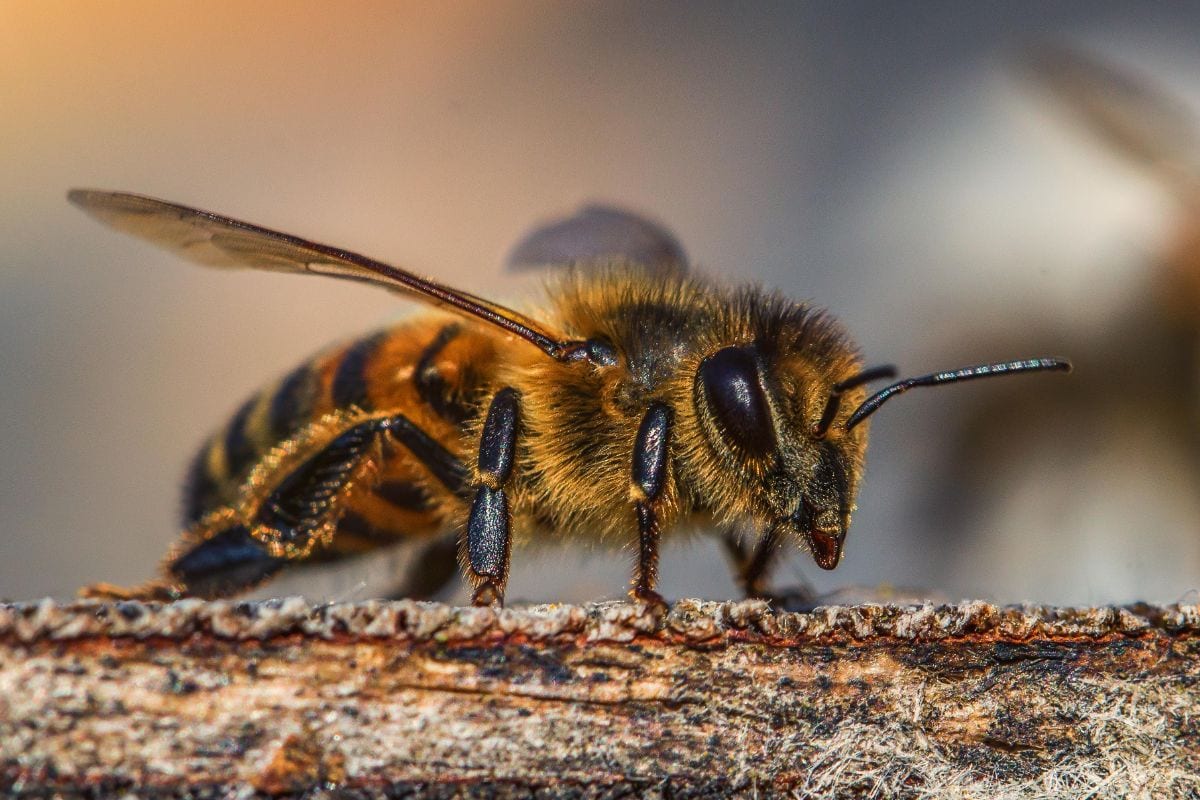If you’re considering becoming a beekeeper, first of all, congratulations! It’s an incredibly rewarding and purposeful vocation.

Second of all, you probably have a whole host of questions that you want answered, the first being, where are you actually supposed to acquire your bees from?
This seems to be one of the trickiest questions that you can ask as a novice beekeeper, as despite being the first step in your new vocation, there isn’t actually that much information out there about purchasing bees. Thankfully though, that’s where we come in.
Below, we’ve compiled a handy guide that can help you on your way to becoming an expert beekeeper.
We not only give you detailed information about where to acquire your bees, but also all of the equipment you’ll need to get started on your journey.
Sounds good? Great. Simply keep reading below, as we take a closer look.
Where Can I Purchase My Bees?
So, why not just jump straight in and answer the titular question? Where exactly can you purchase your bees from as a novice beekeeper? Well, the good news is that you have a few different options.
You can purchase bees from an array of different places, some of which include your local fellow beekeepers, distributors, and even from online retailers. The latter is a great option if you don’t have any in-person buying opportunities.
We would however, always recommend purchasing your bees from local beekeepers if you have the opportunity, as it’s far more ethical.
This is because if you’re having your bees shipped online, the bees can become incredibly stressed during the process. It also poses a larger risk to the colony, as well as the Queen herself.
If you choose to purchase your bees locally, it serves a number of different benefits. First and foremost, presuming that you’re a complete novice, you can gather useful help and advice from an experienced beekeeper.
As well as this, they’ll actually be able to provide you with specific information about the colony you’re purchasing.
Before purchasing your bees from your local beekeeper, make sure that you ask them whether or not the colony has survived their first winter.
Bees who have hardy genes that allow them to make it through the winter months are more likely to demonstrate a long lifespan.
Finally, purchasing bees in person also means that you’ll have an ‘in’, when it comes to the beekeeping community.
You can check in with your retailer to see if there are any local beekeeping groups that you can join, so that you can practice your hobby on a social level, and discuss items with other members of the beekeeping community.
If however, you don’t have the option of purchasing your bees locally, don’t worry, because there are plenty of reputable online retailers out there too.
Most retailers will acquire large bee shipments, and then distribute them all through the local area. The retailer will tell you when your shipment is ready to be picked up, and where you can collect it.
Things To Consider When Purchasing Your Bees Online
As we mentioned briefly above, it’s best to purchase your bees locally, but if this isn’t possible, then you can purchase them online.
There are, however, a few things to take into consideration if this is the position you find yourself in. Below, we explore some of the questions you should ask yourself.
First of all, the initial thing that you’ll want to consider is climate. You’ll want to make sure that the place you’re ordering your bees from has a climate that matches yours.
Your bees are highly unlikely to thrive if they’re coming from a particularly warm area, and yours is cooler.
You’ll also want to make sure that you’re paying more for shipping, if need be. The shorter amount of time that the bees are in transit, the better.
So, make sure that you get the speediest delivery option. On this note, make sure that the retailer you’re purchasing the bees from offers insurance options.
Your bees are no good to you dead, so make sure that, should anything go amiss, that you have insurance to back up your purchase.
Finally, you should also make sure that you’re going to be able to collect or receive your bees when they arrive. This might mean taking a day off from work.

This is why it’s important to always make sure that the retailer provides sufficient tracking information, so that you can check out where your bees are in transit, at any given time.
What Types Of Bees Should You Purchase?
Now that we’ve taken a closer look at your buying options when it comes to beekeeping, we can move on to discuss the types of bees that will be best suited for you.
There are a few different races to choose from, some of which are easier to take care of than others.
Some of the most popular bee options include caucasians, russians, and italians, and carniolans.
If we were to recommend a beginner bee, we would say that italians are the easiest in terms of care.
They’re an incredibly gentle race, and they are very apt at breeding. Italian bees are also good at foraging too, which makes them an ideal choice for beginners.
Carniolan bees might be better for intermediate bee owners, as they tend to swarm more than the other races. But, they are excellent at breeding, which makes them a very popular choice for owners.
Bee Packages
When it comes to selecting a bee package, there are a few different options to choose from. The first of which is made up of a nucleus colony.
A nucleus colony consists of a hive that is already established and thriving. They will have already chosen a Queen, and at this point, she will have also already begun to lay eggs.
When you purchase this particular package, it’s likely that it will be available during the springtime.
If this is the case, it also probably means that they’ve survived at least one winter, which means that they have good genetics.
These are incredibly straightforward in terms of installation, and require very little hassle on the buyer’s end.
Bear in mind that this type of bee package tends to be a little more expensive, but is worth it in the long run, in terms of the genetics of the bees, and the ease of installation.
There is another bee package to consider when purchasing your first lot, and that is to buy a standardized package.
This is the most common way in which people purchase their first bees, and does have a number of advantages, the first being that it’s far cheaper.
In a standardized bee package, you’ll have a set number of bees given to you. This typically consists of around ten thousand bees per package.
In this package, the bees will be placed within the box, as will the Queen, who is placed in a separate cage.
The reason why the Queen is in the cage is because the worker bees will need a few days to adapt, and time to get used to her.
These types of packages can be shipped either to your home, or to one of your local retailers, where you can pick them up.
Tips For Transportation
Next, we’re going to be taking a look at some helpful tips when it comes to the matter of transportation.
Let’s say that you are picking up your bees locally, well, in this case, there are a few things that you’re going to need to take into consideration when bringing them home. It’s helpful to consider these points beforehand, in order to be prepared.
One of the most important things that you should consider when transporting your bees, is that the box is shut securely.
The last thing you want when you’re driving back home is for there to be some kind of malfunction, with the swarm emerging from the container.

This means securing it down, and if you notice any rips or tears in the box, make sure that you’ve brought along some duct tape with you, so that you can fill them in.
Another thing that you should take into consideration when transporting your bees home, are the weather conditions.
We all know that it can be harmful to leave pets and young children alone in a hot car, but the same applies for our bee friends too.
If it’s a particularly hot day, make sure that you don’t simply load them into the trunk and allow them to swelter, as this could be potentially harmful for your bees.
This also applies to when you’ve finally brought them home.
After they’ve made such a long journey, you should make sure to spray them with cool water if need be, as being in a box for an extended period of time can cause your bees to heat up.
As well as this, it’s also a good idea to rejuvenate your bees with some syrup upon arrival too.
Items That You’ll Require As A New Bee Owner
Now that we’ve taken a look at some of the precautions you should take before transporting your bees, we can move on to discuss some of the items you’ll require as a new bee owner.
You should make sure that you purchase these items in advance, and that you’ve acquired all of them in preparation to bring your new hive home.
Allow this to work as a checklist, so that you can make sure that you’re fully prepared for your new vocation.
Clothing
The first thing that you’re going to need to purchase is your protective clothing. This is likely to be the most important purchase you make in regards to your new hobby.
When it comes to clothing, you’ll need to acquire a veil. Now, most bee owners will purchase a suit, or a top half that has a veil attached to it.
Although you can purchase a veil by itself, we would recommend either purchasing a beekeeping jacket with a veiled attachment, or a full suit.
A full suit is a good option if you’re completely new to beekeeping, or you’re simply nervous about handling the colony.
Another item that you’ll require in terms of clothing is a pair of beekeeping gloves(see also: Best Beekeeping Gloves). These are specialized gloves that allow you to handle your bees.
Some people will opt for leather ones, but this isn’t recommended if you’re planning on housing multiple colonies.
This is because you must have completely clean hands whenever you visit a separate colony, and leather is known for being a material that’s incredibly difficult to wash.
So, we would recommend that you simply pick up some disposable latex based gloves instead, as these ensure that you have clean hands each time you visit your colony. In addition to this, they’re extremely cheap, so you can pick up a box full.
A tip that we’d keep in mind when purchasing latex gloves is to make sure that they’re unpowdered, as these can damage the quality of the honey.
If you don’t want to purchase gloves, that’s okay too. Just make sure that your hands are completely clean and disinfected each time you visit the colony.
Notebook
Another item that you’re going to need to purchase before you acquire your bees is a simple notebook. A notebook will be incredibly helpful when it comes to keeping records of your bees.
If you didn’t already know, this is actually considered a legal requirement, and you must keep note of any kinds of treatments that you’re administering.
This is particularly important if you’re planning to sell the honey that your bees have produced.

Whenever you’re in the apiary, make sure that you’re taking note of everything that’s pertinent to your colony.
Equipment
In terms of bee handling equipment, there are a few different things that you’re going to need. First of all, make sure that you’ve got plenty of fuel.
This doesn’t need to be complicated, but basically means anything that has the potential to burn, such as wood.
The next thing you’re going to need to acquire is a smoker. The purpose of a smoker is to calm your honey bees. It generates its smoke by smoldering various fuels.
Finally, you will need a feeder, in order to provide your bees with syrup.
Can I Catch My Own Bees?
Some of you reading this article may have come across sources on the internet that claim that you can catch your own bees, and that this is, in fact, the most natural way in order to acquire them.
We wouldn’t recommend doing this however, as it can often end up in disappointment, especially if you’re a complete novice with no previous experience.
If you’re setting up a swarm box, and hoping that a colony will decide to move in, this isn’t highly likely. You should instead be looking to gain some real practice in terms of beekeeping, and learning how to handle them.
If you’re a more advanced beekeeper, you’ll be more adept at being able to do this, as you’ll have a wealth of experience under your belt.
The Queen
When you purchase your colony from the supplier, you’ll instantly be able to locate the Queen, because she is placed in a cage that’s separate from the other bees in the colony.
She will be marked with a special colored paint, and this makes her distinct from the others. This is particularly helpful when it eventually comes to handling your bees, as you’ll know which one the Queen is, so that you can be extra careful.
Although we hope it isn’t the case, sometimes your Queen can be damaged on the journey to your home. If this is the case, then you’re going to need to purchase a new Queen bee in order to replace her.
There are a few ways to go about this, the easiest of which is to look to online retailers. These will often sell mated bees throughout the perennial season. The Queen will be shipped along with a few other bees to serve her.
When the new Queen bee arrives, your first step is to remove the old one from the hive. After you’ve done this, you’re going to need to leave the space unoccupied for a couple of days afterward.
This is because the scent of the old Queen bee can linger for a while, and this needs to go entirely before putting the new Queen bee into the hive.
Make sure that when the new Queen bee arrives, that you’re taking care of her properly, and placing a spray of water over her. She will be ready to enter the colony within a few days of removing the old Queen.
If you notice that your bees are taking a while to adjust to the new Queen, don’t worry, because this is all a part of the process. It can take a while for them to accept this new bee as their Queen.
Tips For New Beekeepers
Now that we’ve taken a look at some of the most important points when it comes to purchasing bees as a beginner, we can move on to take a look at some helpful tips that will guide you through your journey. To find out more, simply keep reading below.
Water
In order to make sure that your bees are thriving, you’ll need to make sure that they always have access to a clean water source. In order to accomplish this, you can simply place a bird bath in the space, so that they can stay hydrated.
Plant Flowers
This one might seem simple, but you need to make sure that your bees have plenty of flowers to pollinate themselves with, as this will help to ensure their happiness, and allow your colony to thrive.
Plant a variety of different flowers, and also ones that bloom at different times.
Air Flow
When it comes to keeping your bees safe and happy, you’ll need to make sure that they’re getting plenty of air flow in the hive(see also: Flow Hive Reviews).
This will also stop the honey from melting within. You can purchase special inserts to put in the hive, that add extra ventilation, and decrease humidity levels.
Regular Inspections – If you want to make sure that your bees are as happy and as healthy as possible, you’re going to need to conduct regular inspections. This will help you to be on the lookout for various pests and diseases that could pose a risk.
Keep Apiary Clean – Make sure that you’re always cleaning and disinfecting your equipment, in order to make sure that your apiary remains completely disease free.
Final Thoughts
To sum up, when it comes to purchasing bees for the first time, we’d always recommend acquiring them from local sellers.
This will help to ensure that your bees have come from a good home, and will also give you in depth knowledge about the colony that you’re acquiring.
Make sure to ask your seller whether or not the bees you’re planning to purchase have survived the winter season already, as this will help to guarantee the genetic integrity of your colony.
- Do Bug Zappers Kill Bees? Completely Explained - April 9, 2024
- Does Brake Cleaner Kill Bees? Full Explanation - March 20, 2024
- Do Bald-Faced Hornets Kill Honey Bees? & How to Protect Them - March 4, 2024
